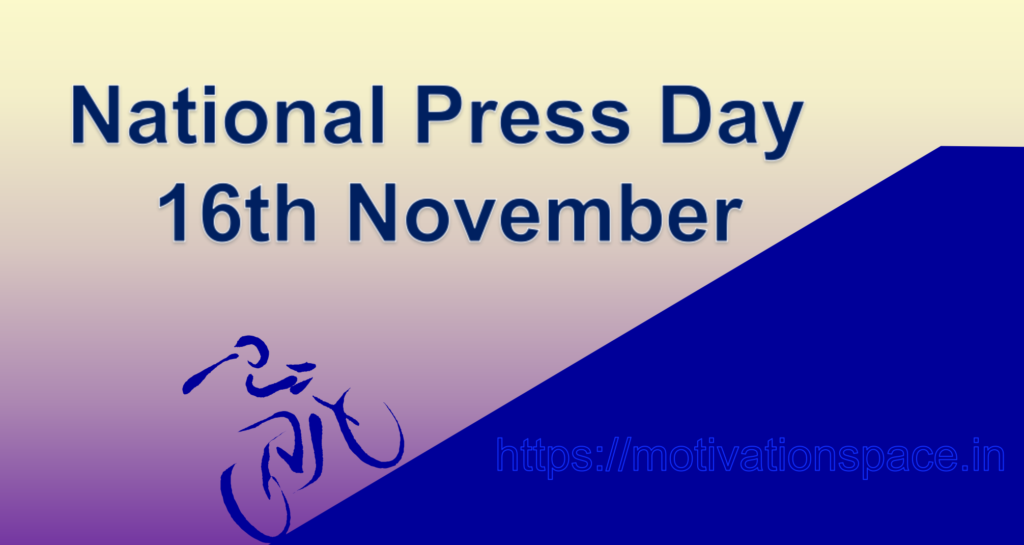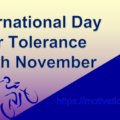Contents of this article
In this article, I describe some terms related to National Press Day 16 November. National Press Day is a significant observance in India that commemorates the role of the press in a democratic society and highlights the importance of a free and responsible media. Celebrated on November 16th each year, it serves as a reminder of the crucial role played by the media in upholding democratic values, promoting transparency, and holding those in power accountable. In this article, we will explore the significance of National Press Day, its history, the state of the media in India, and the challenges it faces in the 21st century.
History of National Press Day:
National Press Day was established to mark the founding of the Press Council of India (PCI) on November 16, 1966. The PCI is a statutory body that acts as a watchdog over the Indian media and ensures that the freedom of the press is preserved while maintaining ethical standards. It serves as a forum for addressing grievances and disputes involving the media and the public.
The establishment of the Press Council of India was a significant step in recognizing the importance of a free press in a democratic society and ensuring that it operates responsibly. Since its inception, the PCI has played a pivotal role in safeguarding the rights of journalists, upholding journalistic ethics, and fostering a culture of self-regulation within the media industry.
Significance of National Press Day:
National Press Day serves as a platform to celebrate and uphold the principles of a free press in a democracy. It highlights the following key aspects:
Freedom of the Press:
It is an occasion to emphasize the fundamental right to freedom of expression and the role of the press in exercising this right. A free press is essential for a democratic society, as it allows citizens to be informed, express their opinions, and hold those in power accountable.
Responsibility and Ethics:
National Press Day encourages media organizations and journalists to reflect on their responsibilities. A responsible and ethical press is vital for maintaining public trust and credibility. It reminds media professionals to adhere to journalistic standards and principles while reporting the news.
Press Council of India:
The day celebrates the existence and role of the Press Council of India, which acts as a guardian of media freedom and helps resolve disputes between the media and the public. The PCI’s efforts to ensure a free and responsible press are recognized and appreciated on this day.
Journalists’ Contributions:
National Press Day is an opportunity to acknowledge the contributions of journalists and media professionals who work tirelessly to bring information to the public. It recognizes their dedication to reporting, investigating, and presenting news stories.
Public Awareness:
The day also raises public awareness about the importance of a free and responsible press. It helps citizens understand the role of the media in a democracy and encourages them to support and defend press freedom.
Challenges Faced by the Indian Media:
While National Press Day is a day of celebration, it also serves as a reminder of the challenges that the Indian media industry faces. Here are some of the key challenges:
Threats to Journalists:
Journalists in India often face threats to their safety and well-being. Physical attacks, harassment, and intimidation are not uncommon, particularly when they investigate sensitive issues or expose corruption. Ensuring the safety of journalists is a critical challenge.
Political Interference:
Political interference in media affairs can undermine the independence of the press. Government pressure on media organizations, censorship, and control over advertising revenue can influence editorial decisions and limit the media’s ability to function as a watchdog.
Economic Pressures:
The media industry in India faces economic challenges, with many media organizations struggling to maintain financial sustainability. This can lead to a dependence on advertisers or political interests, potentially compromising editorial independence.
Fake News and Disinformation:
The spread of fake news and disinformation is a growing concern in the digital age. Social media and digital platforms make it easy for false information to circulate, and this can erode public trust in the media.
Lack of Media Literacy:
Many consumers of news lack media literacy, making them susceptible to misinformation and propaganda. Addressing this gap in media education is essential to help the public critically assess and interpret news.
Sensationalism:
Some media outlets prioritize sensationalism over responsible journalism. Sensational reporting can mislead the public and distract from substantive issues.
Diversity and Inclusivity:
The Indian media landscape often lacks diversity in terms of representation, both in terms of gender and regional voices. Ensuring inclusivity in media is a challenge that needs to be addressed.
Digital Transformation:
The digital revolution has disrupted traditional media models, challenging the sustainability of print publications and leading to new ethical and economic dilemmas in online journalism.
Ethical Concerns:
Maintaining ethical standards in journalism, including fact-checking, source verification, and conflict of interest, can be challenging in the fast-paced news environment.
Privacy Concerns:
Balancing the right to privacy with the need for investigative reporting is a continuing issue. Journalists must navigate this ethical dilemma carefully.
The Role of Media in Democracy:
The media plays a pivotal role in a democracy. It serves as the fourth estate, alongside the legislature, executive, and judiciary, in maintaining checks and balances in society. Here’s how the media contributes to the functioning of democracy:
Informing the Public:
The primary role of the media is to inform the public about current events, government actions, and societal issues. Informed citizens can make educated decisions, participate in the democratic process, and hold the government accountable.
Accountability:
Journalists investigate and report on government activities, corporate actions, and social issues. They uncover corruption, abuse of power, and other wrongdoings, ensuring that those in authority are accountable to the public.
Public Debate:
Media platforms provide a forum for public discourse and debate. They facilitate discussions on various political, social, and economic matters, allowing citizens to express their opinions and engage in dialogue with others.
Monitoring Power:
The media serves as a watchdog by monitoring the actions and decisions of government officials and institutions. This oversight helps prevent the abuse of power and maintain the rule of law.
Advocacy for Human Rights:
Journalists often raise awareness about human rights violations, social injustices, and other critical issues. They can advocate for change and mobilize public opinion to address these concerns.
Promoting Transparency:
Through investigative reporting, the media exposes hidden agendas, conflicts of interest, and corrupt practices. This promotes transparency in governance and corporate operations.
Educating the Public:
In addition to news reporting, the media educates the public about various topics, from health and science to economics and culture. This knowledge empowers individuals to make informed decisions.
Representing Diverse Voices:
A robust and diverse media landscape represents a variety of perspectives and voices, ensuring that minority opinions and marginalized communities have a platform to express themselves.
Bridge Between Government and People:
The media acts as a bridge between the government and the public. It conveys government policies, decisions, and actions to the citizens and relays public concerns and feedback to the government.
Conclusion for National Press Day 16th November:
National Press Day in India is a time to recognize and celebrate the crucial role of the media in a democratic society. It is an opportunity to appreciate the Press Council of India’s efforts to maintain a free and responsible press while acknowledging the challenges and issues faced by the media industry. A free press is a cornerstone of democracy, and it is essential to protect and preserve the principles of journalistic integrity, independence, and accountability. National Press Day encourages us to reflect on the importance of a free and responsible media and its role in shaping the democratic fabric of the nation. As we move forward, it is crucial to address the challenges faced by the media industry and work together to uphold the values of democracy and press freedom. You may drop a comment below or contact us for any query related to the contents of this website.


